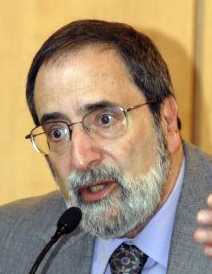By Laurie Baron

SAN DIEGO — Note: I recently retired from San Diego State University after teaching there for 24 years and another 13 years at St. Lawrence University. (It is neither true that I taught at a Catholic university at my previous position nor that the school canonized me. It was in upstate New York and named after the river). For over twenty years I have taught and wrote about Jewish films in general and Holocaust films in particular. I define retirement as putting a new set of tires on an old chassis and driving off the well paved roads of the past. One of my new highways will traverse the landscape of Jewish cinema as a reviewer for the San Diego Jewish World. I invite you to join me on the journey.
My First Wedding (aka Mi Primera Boda), directed by Ariel Winograd (Argentina: 2011).
For those who regularly attend the San Diego Jewish Film Festival, it will come as no surprise that there has been a flowering of films with Jewish themes produced in Argentina, Brazil, and Mexico over the past two decades. Films like Anita (Argentina: 2009), Nora’s Will (Mexico: 2008), and The Year My Parents Went on Vacation (Brazil: 2006) have impressed audiences at the SDJFF. Indeed, this year’s San Diego Latino Jewish Film Festival will reprise Anita, a poignant story about a Down syndrome girl trying to find her mother in the aftermath of the bombing of the Argentine Israelite Mutual Association.
Ariel Winograd’s My First Wedding opened this year’s offerings. Initially, it had the feeling of a classic Woody Allen comedy with a jazzy rendition of “When You’re Smiling” playing over the credits and the groom and then the bride explaining their perspectives to the audience. Daniel Hendler, best known for his leading roles in the films of Argentine director Daniel Burman, plays Adrián, a “non-believing Jew”who is as even-tempered, passive, and thrifty as his “semi-believing Catholic” fiancée Leonora, portrayed by actress, fashion designer, and singer Natalia Oreiro, is emotional, controlling, and extravagant. Their mixed religious backgrounds and opposite temperaments possess the potential for humorous clashes. Similarly, a priest and a rabbi have consented to perform the ceremony on the grounds that it is a “good deed.” The banter between the two could have been mined wittily for comic gems. Other sources of levity are eccentric characters ranging from former lovers of the couple, the bride’s devout mother who still hopes to dissuade her daughter from marrying a Jew, the groom’s grandfather who needs to smoke some pot to relax, and the groom’s cousin who pleads with Adrián to sing at the wedding even though Leonora adamantly opposes this idea.
Unfortunately, the possibilities for clever dialogue and awkward situations are squandered on a rather hackneyed plot and uninspired script. After Adrián accidentally loses the wedding rings, he spends the rest of the movie trying to postpone the ceremony so he can find them. Without revealing any spoilers, this entails draining the water pipes into which one of the rings was dropped, riding a horse while wearing a tuxedo, and borrowing wedding rings from the guests. In the meantime Adrián must appear calm and pacify the increasingly irate and suspicious Leonora whose doubts about her future spouse are being fed by her former boyfriend. These elements quickly descend into a television sitcom rather than rise to the romantic comedy about an odd couple hinted at in the opening scenes
Part of Adrián’s plan involves diverting the car bringing the priest and the rabbi. If they don’t arrive, then the nuptials can’t begin. Meandering around the countryside in their chauffeur-driven limo, they exchange observations about their respective religions. Winograd could have exploited their conversations for perceptive satire, but fails to do so. For example, the two debate evolution. The rabbi, who presumably is liberal, defends creationism, and the priest champions the theory of evolution. Most of their verbal jousting is done with lances that are blunt rather than sharp.
As someone who has appreciated gaining a sense of the Latin American Jewish experience from the recent wave of films emanating from the region, I was disappointed by how generic My First Wedding seems. In his first feature film, Cheesehead, My First Ghetto (2006), Winograd blended the common experiences of adolescence and family foibles with the specific social concerns of upper middle-class Argentine Jews who retreat from the Gentile world to a Jewish country club during the summer. Despite the obvious conflicts arising from a mixed marriage and a rabbi and priest engaged in theological discussions, My First Wedding easily could have been about an odd couple anywhere. Winograd may have fallen prey to the temptation of globalization with the aim of expanding the appeal of his films by minimizing the milieu he knows best and maximizing the formulaic. Having watched many Jewish films, I find the most memorable ones are those that pay attention to the unique backgrounds of their characters and in the process convey messages that are meaningful to mainstream audiences. After all, viewers have been shaped by their ethnicity, gender, race, and religion, even when they resist these formative forces.
San Diego Latino Jewish Film Festival
Salsa Tel Aviv, June 6, 7:00 PM, AMC Otay Ranch Theatre, Chula Vista, CA
Anita, June 27, 7:00 PM, Carlsbad Village Theatre, Carlsbad, CA
Dos Hermanos, July 11, 7 PM, Museum of Photographic Arts, Balboa Park.
For more details, see http://www.sdlatinofilm.com/highlights/jewish-latino-films/
*
Editor’s Note: San Diego Jewish World is delighted to welcome Laurie Baron as our specialist on Jewish film. Author of Projecting the Holocaust Into the Present, and editor of and a contributor to the anthology The Modern Jewish Experience in World Cinema, Baron is uniquely qualified to analyze and critique films by and about our community. Occasionally, he will also comment on more general fare. Henceforth, he may be contacted at laurie.baron@sdjewishworld.com
Pingback: The Wandering Review: Reflections on Jewish Film |